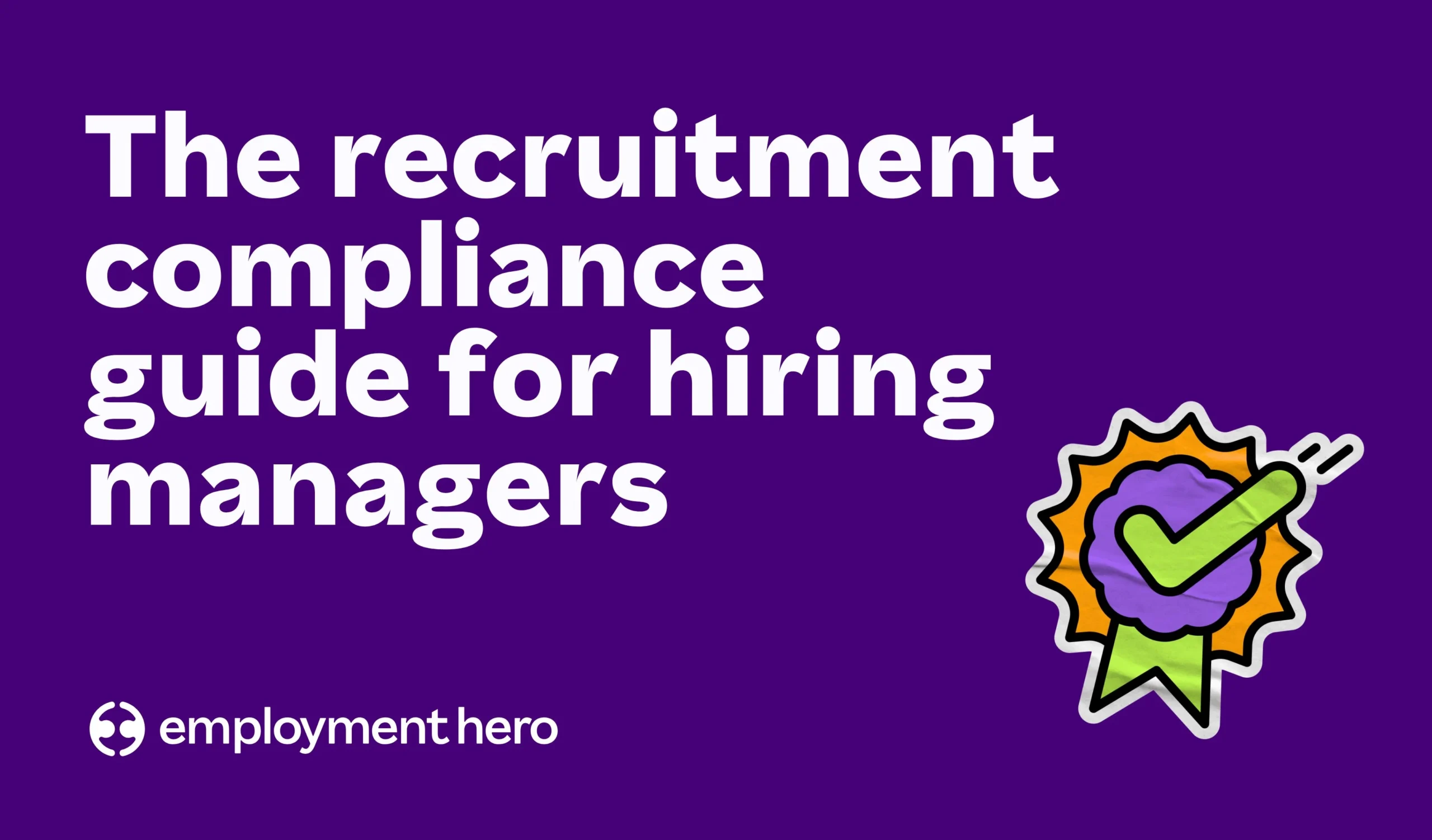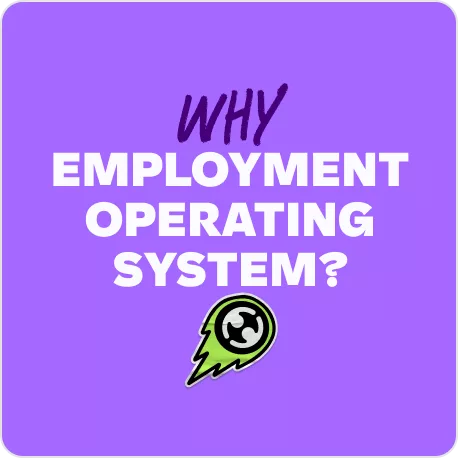Workplace Social Media Policy Template
Published
Workplace Social Media Policy Template
Ensure your organisation is educated with this Social Media Policy.
How can this social media policy template help?
A social media policy is a crucial tool for any business that uses social media. It is a living document that provides guidelines for the social media use of your entire workforce.
This social media policy template is here to help you with the following:
- Maintain your brand identity consistently across all channels
- Treat legal and regulatory sensitivities with awareness
- Prevent a security breach
- Prevent a full-blown PR crisis (and how to act quickly if one does happen!)
- Be upfront with your employees regarding their own social media responsibilities
- Encourage your employees to own and amplify your brand’s message
Download our fully customisable, printable version now. Entirely free.
What is a social media policy for employees?
A social media policy for employees is a set of guidelines and rules that outlines how employees should behave on social media platforms when representing their employer, or discussing matters related to their workplace.
It provides guidance on what is acceptable and unacceptable behaviour on social media channels, and ensures that employees are aware of the potential risks associated with their online activity. It is also used to safeguard the brand’s reputation, security, privacy and legal interests.
What is the purpose of a social media company policy?
Social media has become a huge part of our lives. Employees often use both their personal social accounts and corporate social accounts for various reasons. Be it to share about their achievements at work or give others a sneak peek into a ‘day in the life’ of their roles at work.
Having a social media company policy provides a framework for responsible social media use that aligns with the organisation’s values and objectives. It also serves various purposes, such as:
1. Protecting the company’s reputation
Employees represent the company on various social media platforms, and their posts, comments, or actions can potentially harm the company’s reputation or brand image.
A social media policy provides guidance on what is defined as appropriate content and behaviour, and helps prevent employees from posting confidential, sensitive, or damaging content.
2. Maintaining compliance
Having a crystal clear social media policy can help ensure that employees comply with laws, regulations, and industry standards related to social media use, such as data protection and privacy laws.
This helps to prevent any legal issues such as privacy violations, defamation, or infringement of intellectual property rights.
3. Clarifying expectations
A social media policy sets expectations for employee behaviour on social media platforms, establishing clear definitions of what is considered acceptable or unacceptable content, and what can or can not be shared.
It provides transparency and ensures employees take accountability over anything they post on their personal or corporate social media profiles.
4. Encouraging responsible social media use
It’s crucial to educate employees on the importance of responsible social media use and the potential consequences of inappropriate behaviour, such as disciplinary action or legal liability.
This can be done through your social media policy, and prevents any sensitive information or important document from being leaked unknowingly.
5. Supporting employee advocacy
Besides educating and establishing guidelines, having a social media policy in place can help encourage employees to promote the company’s products, services, or culture on social media channels in a way that shows the organisation’s goals and values.
Social media plays a big role in providing job seekers with the opportunity to gain direct insight into your company culture. It’s incredibly important in helping you build your employer brand. According to Glassdoor, 79% of people use social media in their job search.
With so many people using social media platforms like LinkedIn to find new roles, it’s important you use it to highlight your employer value proposition (EVP) — and that your employees know how to do so appropriately.
What should you include in a company social media policy?
A company social media policy typically includes the following elements:
1. Purpose and scope
The social media policy should clearly state its purpose and the social media channels it applies to, such as Facebook, Twitter, LinkedIn, Instagram, TikTok and others.
2. Responsibilities
The roles and responsibilities of employees, managers, and the organisation itself should be clearly outlined in the policy, with regards to managing all social media accounts and who is responsible for ensuring compliance.
3. Code of conduct
The policy should provide guidance on the acceptable use of social media platforms and what is considered inappropriate behaviour, such as sharing confidential information or making rude and derogatory comments about colleagues or customers.
4. Personal use
Clarify whether employees are allowed to use social media during work hours, what kind of personal content they can share online, and what topics or content are strictly forbidden from being posted in the policy.
5. Monitoring and enforcement
Explain how the organisation will monitor employees’ social media activity, the number of warnings they will get and what consequences employees may face for violating the policy. This way, they gain full clarity and understanding over what is expected of them, and the resulting consequences should they fail to adhere to it.
Once you’ve finalised your social media policy, it’s important to ensure that your employees read and acknowledge it — especially those in your social media team.
You should also remember that the social media landscape changes often. Privacy rules and regulations are constantly updated and new ones are always introduced. Trends also come and go very quickly — ensure that you’ve put in place a regular cadence of updating your social media policy accordingly.
Common social media policy examples
Here are some clauses to get you started with crafting your social media policy:
Usage of company’s social media accounts
- Ownership: The company owns the social media accounts and the content posted on them. Employees should not create company social media accounts without prior approval.
- Authorisation: Only authorised employees should have access to company social media accounts, and they should use them in a way that aligns with the company’s values and goals.
- Branding and marketing: All content posted on company social media accounts should adhere to the company’s branding and marketing guidelines.
- Community management: Employees who are authorised to use company social media accounts should respond promptly to customer inquiries or comments.
- Confidentiality: Employees should not post confidential or proprietary information on company social media accounts.
Usage of personal accounts
- Personal views: Employees should make it clear that their personal social media accounts represent their personal views and not those of the company.
- Professional conduct: Employees should maintain a professional tone and avoid posting any content that is offensive, discriminatory, or defamatory, even on their personal accounts.
- Conflict of interest: Employees should disclose any conflict of interest when posting about the company or its products or services on their personal accounts.
- Branding and marketing: Employees should not use the company’s logo or other intellectual property on their personal accounts.
- Confidentiality: Employees should not disclose confidential or proprietary information about the company or its clients on their personal social media accounts.
Challenges you may face when implementing a social media policy
Implementing a social media policy may not be an entirely smooth ride for companies. Some challenges that can crop up include:
1. Employee resistance
Some employees may perceive having a social media policy as a restriction of their personal freedoms, and may be resistant to its implementation.
To address this, companies should communicate the reasons for the policy, and the benefits of responsible social media use so they can better understand the rationale and purpose for it.
2. Lack of awareness or training
Some employees may not be aware of the potential risks and consequences of inappropriate social media use. Alternatively, they may not have the necessary skills or knowledge to use it responsibly.
It would be beneficial for employers to provide training and education on what good social media use entails and potential case studies that employees can learn from.
3. Rapidly changing social media landscape
Social media platforms and technologies are constantly evolving. You may find it challenging to keep up with the latest trends and updates because the industry is changing at such a rapid pace. Like we’ve mentioned previously, companies should review and update their social media policy regularly — we’d recommend biannually or quarterly — to reflect recent changes.
4. Enforcement
It can be challenging to enforce a social media policy, especially in cases where the policy has been violated. Have a clear disciplinary process in place for any violations, and ensure that all employees are aware of the consequences of non-compliance.
What happens if employees breach the policy guidelines?
If employees breach policy guidelines, the consequences can vary. Depending on the severity of the violation and the company’s disciplinary process, you can choose to issue them with a:
- Verbal warning: For minor violations such as posting negative comments about the company, the employee may receive a verbal warning from their direct manager or HR representative.
- Written warning: For more grave violations such as posting defamatory content about the company or its employees, the employee may receive a written warning that outlines the specific violation, and consequences for future violations.
- Suspension: In some cases such as sharing confidential information with unauthorised parties, the employee may be suspended from work for a period of time as a consequence of their violation.
- Termination: In cases of serious or repeated violations, the employee may face termination of their employment.
In addition to these consequences, you should also take corrective action to mitigate the damage caused by the violation, such as removing offending posts or addressing customer complaints.
It is also advisable to send the offending employee for regular training and education on recommended social media use, so they are able to learn from their mistakes and prevent any further violations in the future.
Manage workplace policies easily with Employment Hero
Now that you know all about the importance of a social media policy, why not download our social media policy template and get started on crafting your own? You can add to it, edit it, and change clauses — it’s all up to you!
If you’re on a mission to build a good company culture, workplace policies are important. Employment Hero can help you manage this easily. HR policies written by HR experts? You got it.
After more suggestions? Make sure you also have the following policies in place:
- Telephone, Mobile and Internet Policy;
- Drug and Alcohol Policy;
- Staff Social Events Policy;
- Working Hours Policy;
- Grievance Handling Policy
- Workplace Health and Safety Policy; and
- Equal Employment and Anti-Discrimination Policy.
Our all-in-one cloud-based platform has tons of policies that are ready to go — all you have to do is choose which policies apply to your business, and personalise them accordingly.
What’s more, you can assign the relevant policies to each employee and have them acknowledge each document digitally, anywhere and anytime. It’s incredibly fuss-free and there’s no paperwork involved. Managing workplace policies will never be a pain again.
Download our fully customisable, printable version now. Entirely free.
Other resources:
Related Resources
-
 Read more: Employment Essentials: Performance Management for SME’s
Read more: Employment Essentials: Performance Management for SME’sEmployment Essentials: Performance Management for SME’s
Effective performance management is more than ticking a compliance box – it’s a critical driver of employee engagement, business productivity,…
-
 Read more: Recruitment compliance guide for hiring managers
Read more: Recruitment compliance guide for hiring managersRecruitment compliance guide for hiring managers
Learn how to manage compliance when finding talent and interviewing candidates in your business.
-
 Read more: Hiring issues holding you back? The business owner’s guide to competing for top talent
Read more: Hiring issues holding you back? The business owner’s guide to competing for top talentHiring issues holding you back? The business owner’s guide to competing for top talent
Published Hiring great people is one of the most powerful ways to grow your business – but it can also…










